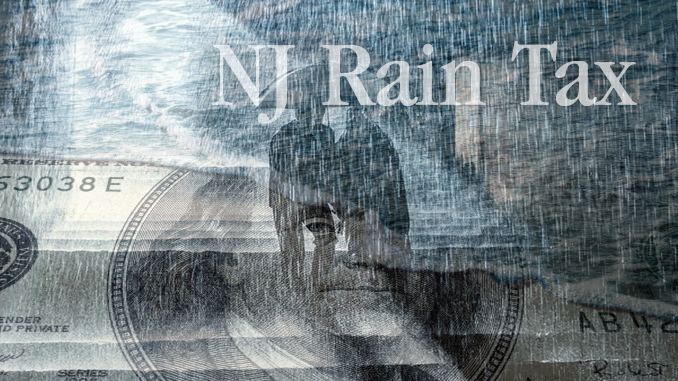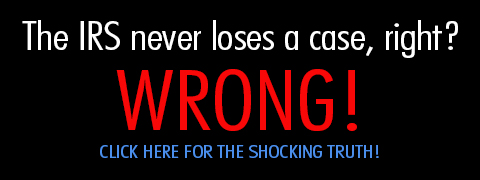
The Garden State, plagued with the highest property taxes in the nation, now plans to saddle residents with a “rain tax.”
By Dave Gahary
New Jersey has been the butt of jokes for as long as most of us can remember, some well-deserved, others not. This writer was born and raised in the state, commonly referred to as “the cockpit of the revolution,” because more battles and encampments took place there than in any other state, and “the armpit of the revolution,” most likely attributed to the many smelly factories that once dotted the more urban areas of the peninsula.
Lately, however, the Garden State has come to be identified with the highest property taxes in the nation—2018 median real estate taxes paid were $7,601—and the state that more residents moved out of than any other state in 2018—66.8% of moves exiting versus entering. New Jersey has been ranked in the Top 10 “outbound” states for the past 10 years, according to a recent United Van Lines Annual National Movers Study.
But now New Jersey is in the process of heaping more misery onto its tax-challenged denizens, by introducing a new tax, a so-called “rain tax.”
A bill is sitting on the ultra-liberal, sanctuary city-supporting governor’s desk right now that, if signed, would give New Jersey’s counties and municipalities the power to collect a tax from properties with large paved surfaces such as parking lots. So basically, the more it rains—or snows—the more these surfaces prevent drainage into the natural environment, and the more water exists as runoff. Put away your rain dance gear, New Jerseyites.
N.J. Assembly Bill 2694 and Senate Bill 1073, which “authorizes municipalities, counties, and certain authorities to establish stormwater utilities” had strong support in both chambers.
At the heart of the bill is something called “stormwater management systems,” which is the control and use of stormwater runoff by capturing and/or reusing it. Proper management of stormwater can lessen runoff, which has increased due to more parking lots, roads, buildings, and other impermeable surfaces. Runoff is undesirable because of flooding concerns, but save for a handful of areas and towns, New Jersey has never had serious flooding concerns.
Predictably, this issue is being tied—by those promoting it—to rising sea levels and “global warming/climate change,” the latter a discounted theory which has been mocked unceasingly this winter season, as record-breaking cold temperatures and snowstorms lay bare the ridiculous claim that the planet is warming due to humans, when in fact it’s been in a cooling trend since 1992.
None of this will stop the central planners in the Garden State, however, who are giving all sewerage authorities in the state a wide berth to drain more money from hapless state residents.
“Every sewerage authority is hereby authorized to charge and collect rents, rates, fees, or other charges for direct or indirect use or services of its stormwater management system,” reads the Senate bill.
The bill’s ominous language should frighten all residents of the state: “The stormwater service charges may be charged to and collected from the owner or occupant, or both, of any real property. The owner of any real property shall be liable for and shall pay the stormwater service charges to the sewerage authority at the time when and place where these charges are due and payable.”
And how will all this new infrastructure be paid for?
“The bill would permit municipalities and counties to finance the creation, operation, and maintenance of stormwater utilities through the imposition of user fees and the issuance of bonds.”
That’s right, the moneyed global elite would be the ones to benefit from this new scheme, via the issuance of bonds.
What bothers some most about this bill is the free hand it gives to moneyed interests.
“We all want to protect our environment,” stated N.J. State Senator Thomas H. Kean Jr., the Republican Leader of the Senate since 2008 and the son of the former N.J. governor. “We all want to preserve it for future generations. But this is a weighted tax. The citizens of New Jersey . . . really with no oversight and no way to defend themselves against tax increases at local levels.”
Wasn’t taxation without representation one of the main reasons our forefathers founded this once-great nation?
With N.J. residents being squeezed by an elite political structure, we may see the beginnings of a new rebellion, in the state so well-known for its propensity to challenge the corrupt elite.
Dave Gahary, a former submariner in the U.S. Navy, prevailed in a suit brought by the New York Stock Exchange in an attempt to silence him. Dave is the producer of an upcoming full-length feature film about the attack on the USS Liberty. See erasingtheliberty.com for more information and to get the new book on which the movie will be based, Erasing the Liberty.


Had the constitutional framers not replaced the Bible’s immutable moral law (including its economic and tax laws) with their own capricious man-made traditions, there would be no graduated income tax, property tax, sales tax, or any of the other sundry taxes (including a rain tax) that’s common to the Constitutional Republic.
For more, see Chapter 25 “Amendment 16: Graduated Income Tax vs. Flat Increase Tax” of free online book “Bible Law vs. the United States Constitution: The Christian Perspective.”
Then find out how much you really know about the Constitution as compared to the Bible. Take our 10-question Constitution Survey in the right-hand sidebar and receive a complimentary copy of a book that examines the Constitution by the Bible.